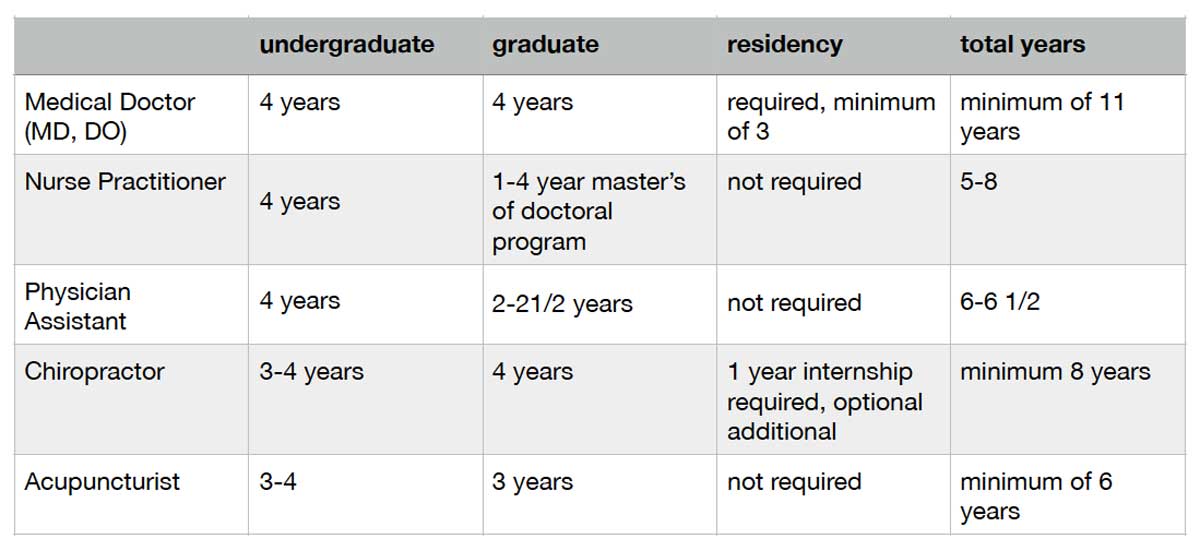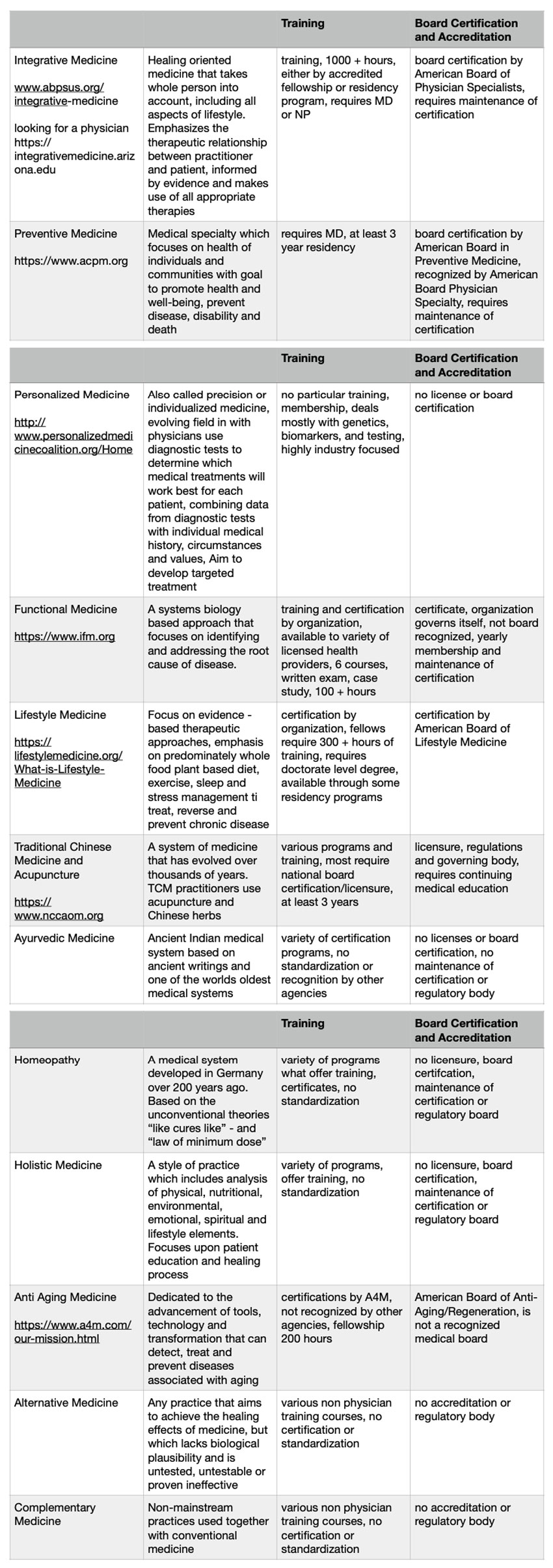I recently wrote about the difference between Integrative and Alternative medicines, but you may wonder what exactly is involved in becoming a certified integrative physician?
Unfortunately, some physicians (and many non-physician providers) describe themselves as “integrative” even though they have had only minimal training. Some have no training at all! If you are looking for an integrative physician, check that they are fellowship or residency-trained, either by the Arizona Center for Integrative Medicine and/or have completed a board-recognized fellowship/residency, with board certification by the American Board of Physician Specialties. Many physicians who have completed the Arizona Center training, an internationally-known program, have gone on to lead integrative programs at prestigious universities and medical centers.
As patients need to be discerning when seeking a practitioner of integrative medicine, it is worth the time to investigate a physician’s formal and informal training, licensing and board certification. While some have thousands of hours of personal study, others may have only attended a weekend workshop and feel comfortable promoting themselves as integrative providers.
It’s also important to keep in mind that integrative physicians can provide patients with a range of services and that these may vary depending on a physician’s practice. Consider the guiding philosophy and definition of integrative medicine: Integrative Medicine defines a healing-oriented medicine that takes into account the whole person, including all aspects of lifestyle. It emphasizes the therapeutic relationship between practitioner and patient, is informed by evidence, and makes use of all appropriate therapies. You may also want to read over the eight defining principles of Integrative Medicine.
Integrative Medicine defines a healing-oriented medicine that takes into account the whole person, including all aspects of lifestyle.
The guiding philosophy and definition of integrative medicine
For those considering the amount of education and expertise required to become a physician, take a look at the table below. Most physicians have at least three years (some more than seven) of residency training, where they work directly with patients, and, upon completing four years of medical school, usually have the equivalent of 20 years of work experience after completing their residencies–upwards of 40,000 hours! As I practiced family medicine prior to pursuing a Fellowship in Integrative Medicine, I appreciate the advanced training necessary to reach the goals of providing patients with appropriate and effective care.




